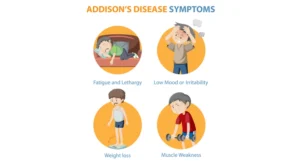Decoding Vitamin Deficiencies: A Guide to Optimal Health and Online Learning
By TOI Staff
August 20, 2023
Update on : August 20, 2023

In the intricate web of health and vitality, vitamins weave essential threads contributing to our overall well-being. This article will look into the intricacies of identifying vitamin deficiencies, shedding light on the subtle cues and indicators our bodies offer when these vital nutrients are lacking. Just as a detective deciphers clues, identifying vitamin deficiencies involves keen observation and understanding of the body’s intricate language. To delve deeper into this realm and gain a comprehensive understanding, to learn more, you can consider joining an online nutrition course, which equips individuals with the knowledge to decipher their body’s signals and make informed choices.
Vitamin A: Vitamin A is pivotal in maintaining optimal eyesight. This fat-soluble nutrient is instrumental in producing rhodopsin, a pigment that aids low-light vision. Its scarcity can gradually unveil as night blindness, rendering individuals vulnerable in dimly lit environments. Moreover, a deficiency can manifest as a deterioration in visual acuity, making it harder to discern fine details. Addressing this deficiency involves integrating vitamin A-rich foods like carrots, sweet potatoes, and spinach into the diet, fortifying the body’s ocular armour.
Vitamin D: Vitamin D is a cornerstone of bone health and immune function. This fat-soluble vitamin enhances calcium absorption, vital for bone mineralisation and strength. Inadequate exposure to sunlight, a primary source of vitamin D synthesis, or a lack of dietary sources can lead to weakened bones and an immunological compromise. Persistent fatigue can stem from insufficiency of this vital nutrient and muscle weakness. Incorporating fortified foods and embracing safe sun exposure are vital strategies to maintain optimal vitamin D status.Vitamin C: Vitamin C, celebrated for its immune-boosting prowess, is prominent in the body’s defence mechanisms. This water-soluble vitamin is integral for collagen synthesis, wound healing, and antioxidant defence. A shortage of vitamin C can weaken the immune system’s shield, rendering individuals more susceptible to infections and illnesses. Combatting this insufficiency entails incorporating vitamin C-rich foods like citrus fruits, bell peppers, and strawberries into one’s diet, empowering the immune system to ward off potential threats.Vitamin B12: Vitamin B12, known as the “energiser,” plays a pivotal role in energy production within the body. This water-soluble vitamin is crucial for synthesising red blood cells and maintaining the nervous system. Its scarcity can result in persistent fatigue, weakness, and even neurological symptoms such as tingling sensations in extremities. Consuming animal-derived foods such as meat, fish, and dairy products is vital to secure adequate vitamin B12 levels. Vitamin E: Vitamin E, a formidable fat-soluble antioxidant, protects cells against oxidative stress and protects skin health. Its presence prevents cellular damage by neutralising harmful free radicals. This vitamin also bolsters the immune system, lending an additional layer of defence. A scarcity of vitamin E can manifest as dry skin, brittle hair, and weak nails, outward signs of underlying internal imbalances. Consuming sources rich in vitamin E, such as nuts, seeds, and vegetable oils, contributes to a resilient cellular shield and promotes skin vibrancy.Vitamin K: Vitamin K, indispensable for blood clotting and bone health, emerges as a pivotal player in maintaining these essential functions. This fat-soluble vitamin facilitates the production of proteins required for blood coagulation and calcium binding in bones. Inadequate levels can lead to prolonged bleeding and a heightened risk of bruising. Manifestations of deficiency, such as easy bruising or excessive bleeding, underscore the importance of maintaining adequate vitamin K levels. Consuming leafy greens, broccoli, and fermented foods ensures the body’s reservoir of vitamin K remains robust.
Vitamin B6: Vitamin B6, a crucial water-soluble nutrient, takes centre stage in brain health and cognitive function. This vitamin participates in neurotransmitter synthesis, crucial for optimal communication between brain cells. A deficiency can precipitate cognitive impairments, mood disturbances, and even more severe neurological symptoms. Recognising shifts in mood, memory lapses, and difficulties in concentration becomes paramount in deciphering potential vitamin B6 deficiencies. Incorporating vitamin B6-rich foods like poultry, fish, and fortified cereals can bolster cognitive vitality.
The Value of Online Nutrition Programs
While the above descriptions provide a glimpse into the fascinating world of vitamins, there’s so much more to explore in the vast universe of nutrition. Imagine the power of having a deep understanding of all the nutrients, their functions, their deficiencies, and how to maintain a balanced diet for optimal health. The complexities of nutritional science can be overwhelming, but with the right guidance, it becomes an enlightening journey.This is where online nutrition courses step in as a beacon of knowledge. These courses provide a structured and comprehensive approach to learning about the body’s needs and how to address any imbalances. You can learn at your own pace, revisit topics that pique your interest, and access a plethora of resources at your fingertips. Online courses often provide interactive modules, quizzes, and forums where learners can discuss and clarify doubts. Moreover, with the convenience of digital learning, it is now easier than ever to fit such courses into your busy schedule, making continuous learning a viable option for everyone.
Conclusion
In the intricate web of health and vitality, vitamins weave essential threads contributing to our overall well-being. Investing time in an online nutrition course can be the key to unlocking a deeper understanding of your body’s intricate language and requirements. Knowledge is power, and in the realm of health, it’s the foundation for a lifetime of vitality.
Read more: Decoding Vitamin Deficiencies: A Guide to Optimal Health and Online Learning















